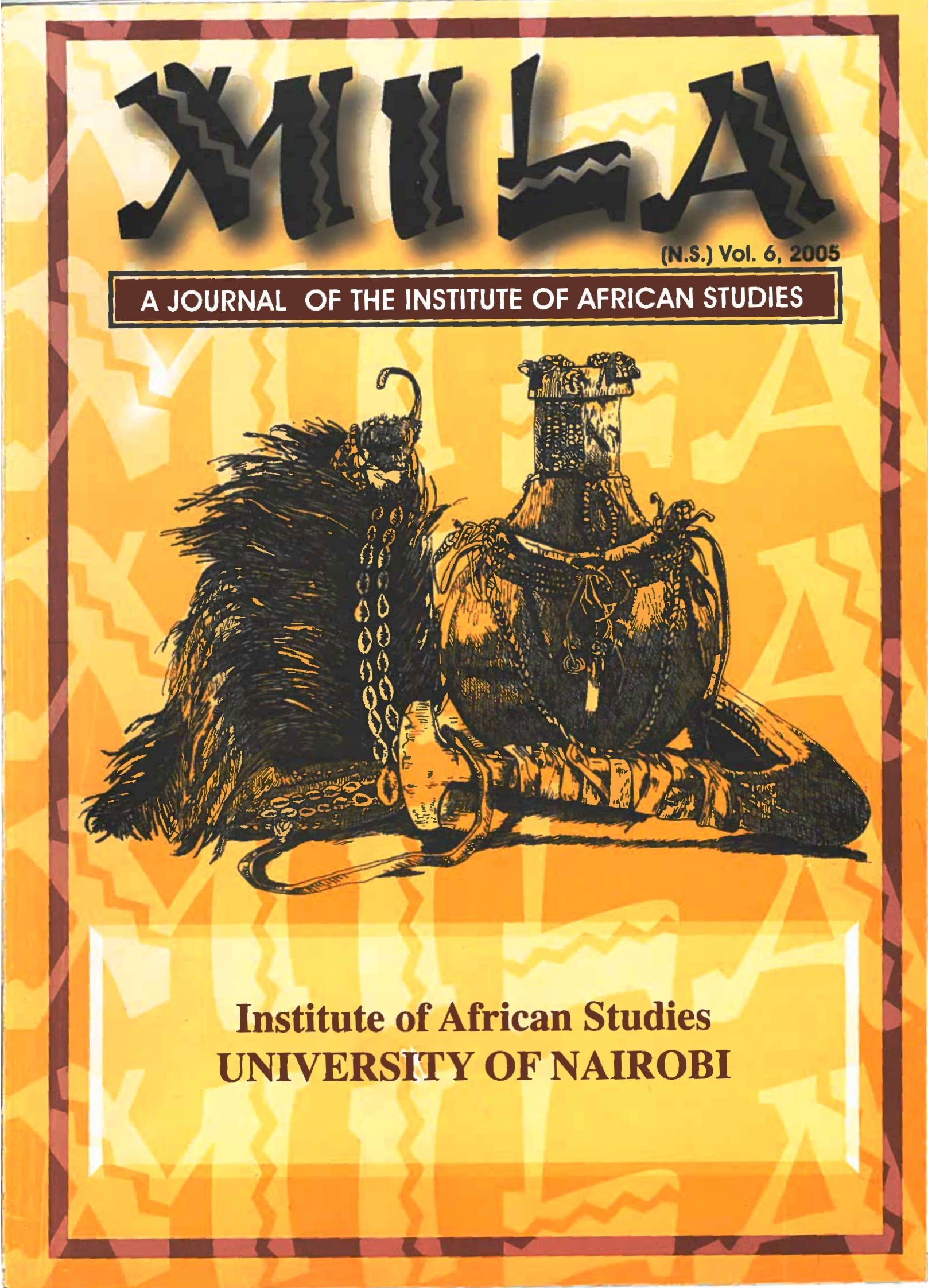The Tradition of Ramogi
Beliefs and Practices of the Levirate Amongst the Luo in Bondo Division, Bondo District, Western Kenya
Abstract
This paper explores the beliefs and practices associated with the levirate institution. The fieldwork was carried out in September 1997 amongst Luo males in Bondo Division, Bondo District, Nyanza Province, Western Kenya. The methods of data collection were essentially qualitative since the major interest was to determine peoples' perceptions and knowledge about the levirate and how these blend with other wider beliefs in the Luo community. In particular, the major concern of this article is to apprehend how the tradition of Ramogi (ker or leader) is explicitly and implicitly manipulated in a bid to confine women within the institution of the levirate. The findings indicate that the levirate union is declining in the study area. Western influences in the form of Christianity, formal education, new technologies, and urbanization are some of the factors that have led to this decline. However, the study found that the levirate is still practiced to varying degrees in the rural areas of Bondo District. This is because the local people, and especially the males, continue to believe that the levirate is inevitable, natural, universal, and mandatory. Specifically, the origins and justifications for the existence of the levirate institution evoke a mythological dimension of the Luo culture and any violation of this tradition constitutes a transgression. Thus, all individuals in Luo society are consciously, or otherwise, aware that if such a prohibition is ignored, resisted, or rejected, it will bring ill health and magical harm to an individual.

